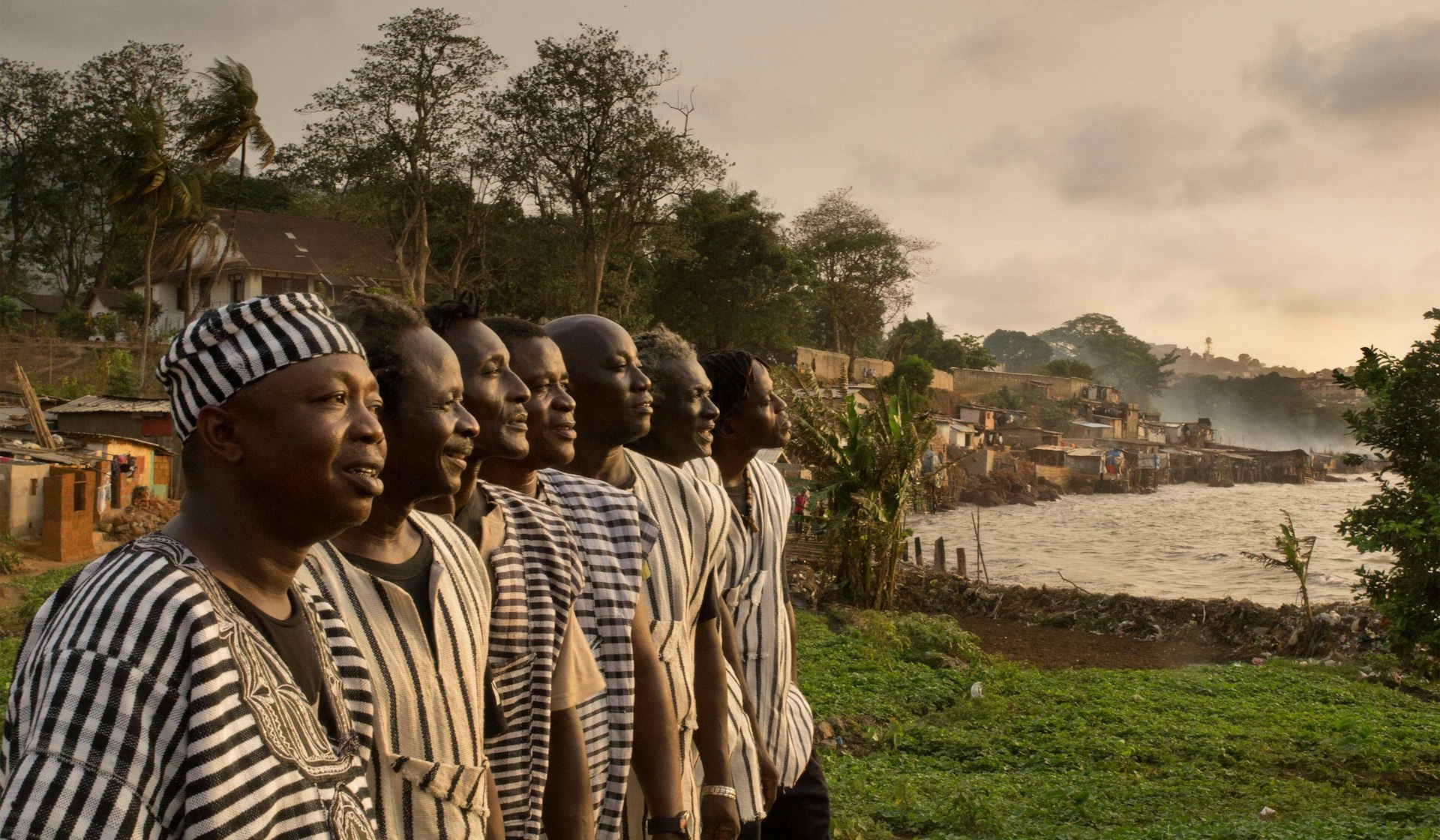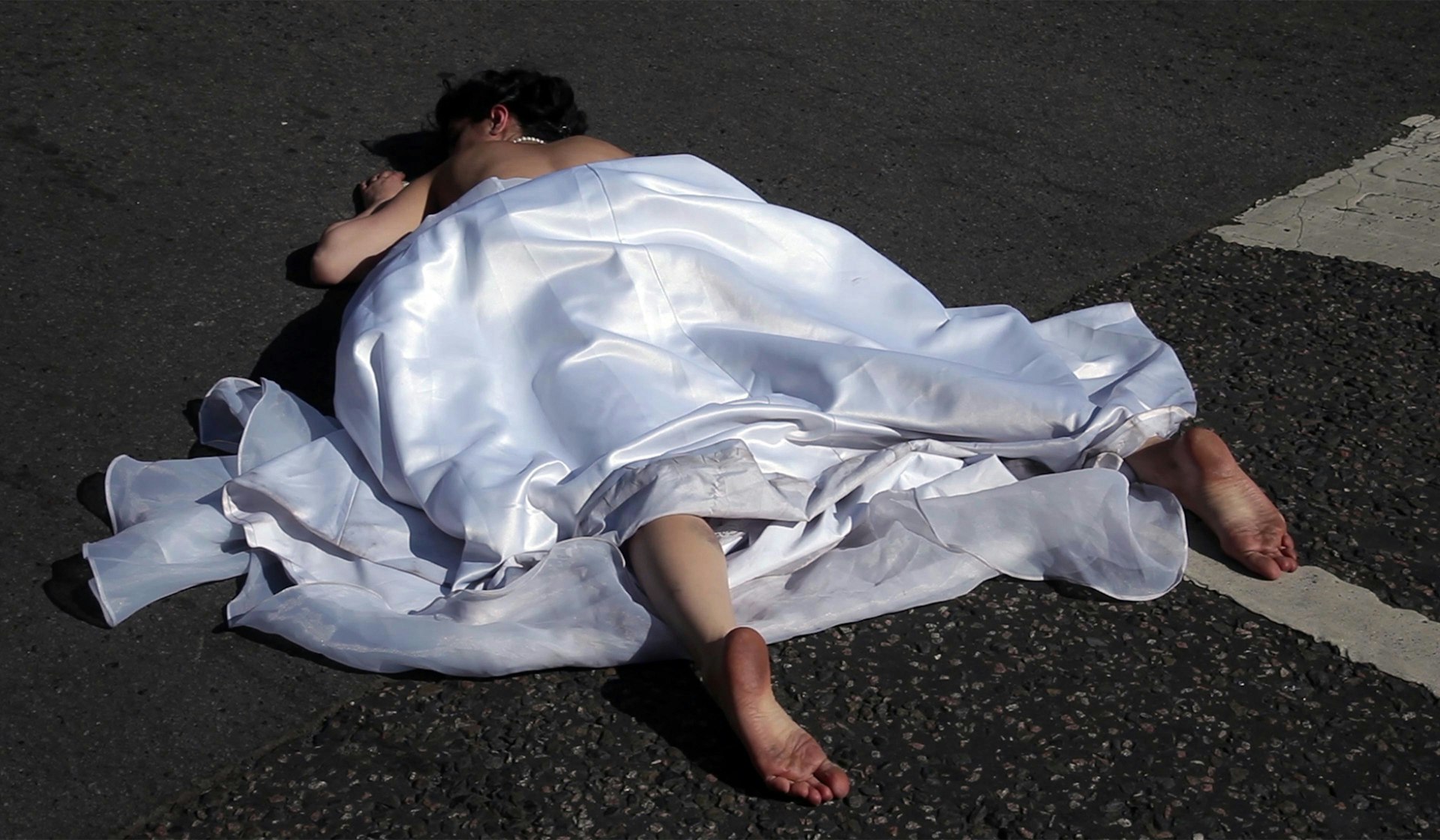
Sierra Leone's Refugee All Stars
- Text by Alex King
- Photography by Jay Dickman
As civil war tore Sierra Leone apart from 1991 to 2002, musician Reuben Koroma was one of 2.5 million people internally or externally displaced by the conflict. In 1997, he arrived with his wife at the Kalia refugee camp in neighbouring Guinea and found music was one of the few things that eased his frustration with the situation. Reuben sought out other professional musicians in the camp and they eventually formed Sierra Leone’s Refugee All Stars together.
The All Stars began to tour other refugee camps to play for the thousands of Sierra Leonians still unable to return home. At the Sembakounya Camp they met filmmakers Zach Niles and Banker White who followed the band for the next three years and turned the bands’s story into a documentary. After the war finally ended, the band made their way back to Freetown to record their debut album Living Like a Refugee, released in 2006.
The Refugee All Stars have gone on to tour all over the world and shared the experiences that inform their immensely positive music with audiences on some of the biggest international stages. Before they play the awesome Somersault Festival in North Devon on Sunday, July 20, Reuben spoke to Huck about the life of a refugee, the responsibilities of musicians and life in Sierra Leone today.
How the Refugee All Stars met and what made you want to make music together?
I led the war in Sierra Leone with my wife in 1997 and met the other members of the band after arriving at a refugee camp in the neighbouring country, Guinea. I had been thinking about music and looking for musicians. I found the guys and eventually we formed a band.
Putting heads together is better than one single man just thinking alone with his idea. Many heads are better than one so we decided to put our heads together and try to write music. I was a full time musician in Sierra Leone, that was my job, but after I had to flee to the refugee camp, the war separated me from my musician colleagues.
It’s a similar story for the people in the band, they were all musicians before the war, except for the youngest member, Black Nature. He was very young when he began to play with us but everybody else was a full time musician before we came to the camp.
How has music helped you come to terms with your experiences?
Music started helping me as an individual because it helped to comfort me when I was highly frustrated. I used music as a therapy to heal myself because when I play music I seem to forget all the troubles that I’ve been through. Music has brought me to many world stages and has helped me to connect with many international people.
Music has also helped to change the minds of the youth, who had just been thinking about guns or leaving the country. To some extent it has helped to bring peace because it has helped young people to realise there’s no sense in fighting, so they put away their guns and go back to school, you know?
Do you all feel a sense of responsibility to share your experiences, especially with younger people?
Yes, because I think that if we share the experiences we’ve been through with other people it will be a very good lesson for them. I always tell people that music can help to bring a change because music directly speaks to the people. People who cannot read, people who cannot watch TV or listen to the radio, they all listen to music.
If the lyrics are positive and talk about unity, talk about love, talk about peace and stability I think it will help to bring a positive change. So, musicians have a responsibility to help make the world a more peaceful world, and that’s the biggest responsibility that we have.
Do you feel it’s important for bands to comment on social issues, like you do?
Within the band we are just like journalists. We collect the ideas, feelings and opinions of the people. When we see social themes we try to explore them through our songs. Especially when the majority of people have grief or something they would like to say but they don’t have the chance to express. We can take that grief and those complaints and turn it into music. When we sing, the people all feel that we are talking for them.
Do you think music has an important role to play in achieving peace and reconciliation in Sierra Leone?
Right now, yes. Music has done a lot for people even though there is a huge amount of poverty, with most of the youth unemployed. People in Sierra Leone love music and it has helped directly since the end of the war. If your nation loves music it will move towards peace.
What’s the situation like in Sierra Leone today?
In my opinion, things are really moving forward. If it continues like that Sierra Leone will have a brighter future. The government is trying very hard to rehabilitate most of the really damaged areas but I’m a little sceptical about the distribution of water and electricity. We still have a sluggish kind of response of the part of the government but people are really suffering for water. There’s free healthcare for pregnant women, young mothers and children under the age of five which is a really good thing from the government and we really appreciate that. I think they need to do more to provide safe drinking water for everybody but over all I think Sierra Leone is coming up.
What’s the future for the band?
The band is still continuing to provide good music, positive music that will help to change the minds of Sierra Leonians and people worldwide. We encourage people to think about maintaining precious peace and coming together to do positive things. The band is really working hard and we are hoping to build a community centre in our country, so we are trying to raise money for that.
Find out more about Sierra Leone’s Refugee All Stars and grab a copy of their new album Libation out now.
Catch them live at Somersault Festival, Thursday July 17 – Monday 21 at Castle Hill, North Devon.
